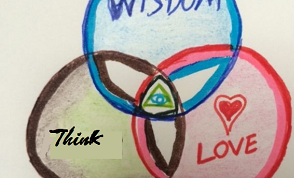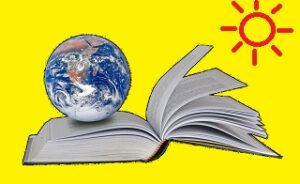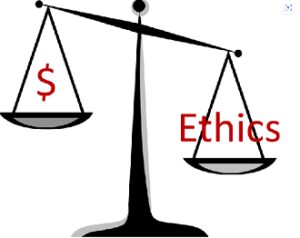
Arquivo para a ‘Information Science’ Categoria
The unwanted peace
Two sides measuring forces, with increasingly aggressive attacks, is not just what is happening in Ukraine, but the general civilizing climate, few believe in peace and reconciliation of peoples.
is not just what is happening in Ukraine, but the general civilizing climate, few believe in peace and reconciliation of peoples.
The civilizational crisis predates the two wars and for many analysts it expanded afterwards.
Even in the religious milieu, there are those who condemn, saying that they seek a “single religion” or the work of the devil will be a climate of tolerance and peace between religions, after all what Bible they read.
The latest attacks by Moscow on Ukraine, launched 80 missiles in several cities, including the capital Kiev, the objective was mainly to hit infrastructure, some cities had power cuts and supply difficulties, it is considered a response to the bombing of the bridge that connects the Crimea to Russia.
The G7 scheduled an emergency meeting (photo), we warned in a post that the wait for the G20 meeting for November was a very long period, and the northern hemisphere will already be on the verge of winter and dependent on Russian gas for heating environments.
The entire West condemned the Russian attacks, of course there are many websites and newsletters that are pro-Russia and in fact we warned in Monday’s post that a peace proposal would be possible.
Is Russia in despair over the setbacks or now we actually have a total and open war, what kind of response the G7 can give is a question, Ukraine wants a protective shield for these attacks, Russia wants recognition of the annexed regions.
Turkey’s Foreign Minister Mevlut Cabusoglu called for an urgent ceasefire, but stressed that a “just peace” would mean maintaining the integrity of Ukraine’s territory.
Yesterday’s G7 meeting announced “indefinite” support for Zelesnky, but practical is humanitarian aid until 2024, while the Ukrainian president calls for an air defense system that he called his “number 1 priority”, the war. goes beyond the limits.
Russia tries to drag Belarus into the war, while Ukraine involves the European Union.
When we see the sanity response coming from Turkey and a west dragging itself to war, we have to understand where this crisis of civilization comes from where hatred and intolerance spread.
Repentance, start over and grace
Repentance is not the same as remorse, it is linked to the past and prevents a positive start, there is no awareness of guilt and a new state of grace is not achieved.
and prevents a positive start, there is no awareness of guilt and a new state of grace is not achieved.
Grace is living life to the full, with the limits that life imposes on everyone, however repentant, you can compress the past strictly to what it was: a mistake, and live well the present and the future by overcoming an anguish that is inalienable responsibility for the fault or error committed.
To repent is to live intensely and truly in the present, even if some suffering or mark remains from the past, whoever took a step after that managed to start over.
Ludwig Feuerbach, best known for Marx’s Theses against his Hegelianism, called old Hegelianism, in his maturity wrote about remorse, his reading is important for the confrontation he makes both with Schopenhauer and with Kant.
Feuerbach recognizes the originality of the subject and proposes it in a broader scope of freedom, examining remorse and regret as conditions of imputability of an act,
In opposition to Schopenhauer, Feuerbach will affirm that the character of a man is not innate, nor unchangeable, that is why the death penalty is wrong, and here too, the discussion about the right of the Modern State on human life, an always controversial topic is important.
Against Schopenhauer, Feuerbach argues that man’s character is neither innate nor unchangeable, so the death penalty is mistaken.
The foundation of freedom is the self that acts in the game of passions and is essentially the relationship with the Other, which is widely explored in modern literature by Paul Ricoeur, Lèvinas and other authors, there is a phenomenological resumption of this issue.
The suggestions in the moral and legal field are essentially in relation to this relationship with others, and the suggestions in these fields are particularly interesting, but ethical questions remain, such as that of the absolute foundation of moral obligation, which is posed in Kant in the explanation of the which is moral conscience.
This discussion expands in some authors to the field of sensitivity (SERRAO, 2007) and mysticism (TOMASONI, 2010), where the issue of grace can be included more broadly, adding the recognition of grace where there is repentance and a new beginning.
References:
Adriana Veríssimo SERRÃO (2007). Pensar a sensibilidade. Baumgarten – Kant – Feuerbach, Lisboa, Centro de Filosofia da Universidade de Lisboa, PT: Lisbon.
TOMASONI, Francesco (2010). Tra misticismo e scienza: l’uomo e la sua ‘sensibilità’ nell’Eklektik, in: L’umanesimo scientifico dal Rinascimento all’Illuminismo, a cura di Lorenzo Bianchi e Gianni Paganini, IT: Napoli.
There is no neutrality or presumed innocence
The electoral result in Brazil was a surprise to many people, among the parties in dispute there is always a triumphalism, that is even natural, but within the rules and electoral laws that include the rules for the dissemination of polls and this is the biggest surprise of the election in Brazil.
and electoral laws that include the rules for the dissemination of polls and this is the biggest surprise of the election in Brazil.
The worst result of democratic elections is always some scratch on the already fragile democracy.
The free debate of ideas and political proposals is essential in politics and in society as a whole, these limits when they are extrapolated create gaps of hate and intolerance harmful to the political process, there is no way to say that the researches were very wrong, but they were only wrong in a sense and this is beyond the assumed neutrality of research institutes.
There is not only misinformation, therefore, there is also bad information and badly worked by the bodies that should preserve the scientific, mathematical and statistical criteria, to say that there was a turnaround on the eve of the elections, it is possible in two to 4 percentage points, above the alleged margin of error, but they reached 10% and even more, this does not contribute to democracy and turmoil.
Even the STF and STE are exempt from any blame or request for an investigation, after all, all polls must be taken to the STE (Supreme Electoral Court) in order to be disclosed, that is, it may not endorse (it is not he who does the research), but authorizes the disclosure and is solidary.
In order for there to be no political-electoral exploitation, a response to society is necessary, even serious researchers and analysts have commented on the fact, I quote Pablo Ortellado from USP (see BBC interview) who gave an interview saying that they should review the “methods”, understand- if here method by methodology, I think that it is not necessary to have a criterion of scientific and political neutrality.
For the sake of democracy, for a peaceful and democratic course in the second round, it is necessary to clarify society as a whole, saying that polls do not influence is sophistry.
It is necessary to safeguard the democratic electoral process and respect the rules of the game, in Brazil it is very difficult, but fragile democracy needs this and society is expected to respond.
Russian Roulette: The Atomic Peril
Russian and NATO rhetoric grows as Russia retreats from the Ukraine war, the forces of this country arrived in Lymann, a city within the Oblast (extado) of Donetsk, where contested plebiscites were held there and also in Luhansk, and Announcement of annexation to Russia.
the Ukraine war, the forces of this country arrived in Lymann, a city within the Oblast (extado) of Donetsk, where contested plebiscites were held there and also in Luhansk, and Announcement of annexation to Russia.
The advance towards the Donetsk Oblast actually looks like a retreat of Russian troops, we warned last week that Russia would not react peacefully in a loss of the war, the annexation announcement demonstrates this, but the call-up of reservists seems to warn of something greater .
The call volume of 300,000 reservists doesn’t seem to be just a function of the Ukraine war, the nuclear threat from both Russia and the US government’s response don’t seem like bluffs, Putin himself said it wasn’t a bluff, and Western analysts say that Russian TV even mentions in its war news, Armageddon, alluding to the battle at the end of the world.
Only nine countries in the world have nuclear weapons of mass destruction, the two main powers in the conflict the United States and Russia, together have 12,853 nuclear warheads on the planet, of course what is known, and this is 90% of the total, China for example has only 350 warheads, North Korea makes a big deal out of less at 100, warheads are explosive charges having a cylindrical nuclear capsule placed inside a rocket, missile or projectile. India is fifth member.
Nuclear power plants should also be considered in this account, which once bombed can have even more devastating effects than warheads, but it is thought that at an early stage weapons considered “tactical” would be used, but it is evident that this would happen in a domino effect.
This whole scenario is terrifying, negotiation is always possible, China has already spoken out harshly warning of this possible spillover, but the preparation and tension between NATO and Russia seem to put at risk at the highest alert level.
Peace is always the path to the civilizing process, it has social and political nuances of course, but the defense of life and civilization must prevail over insanity, we hope.
The moments are of high tension and October will be very decisive for the conflict.
Wisdom and Love
*The previous text is wrong, because I had some security problem with my blog.
Perhaps the greatest of paradigms and thus the most susceptible to human errors is Love, one can speak of the Greek classification: eros, philia and agape, but I want to link it here to wisdom in the sense of full happiness, not the one that produces utilitarian but spiritual fruits.
errors is Love, one can speak of the Greek classification: eros, philia and agape, but I want to link it here to wisdom in the sense of full happiness, not the one that produces utilitarian but spiritual fruits.
There is a book “The shadow of love, on the concept of love in Heidegger” and another that was Hannah Arendt’s thesis, they do not seem to be but are linked, because it was during the thesis period that Heidegger and Arendt had a romance and so she began to be mentored by Karl Jaspers.
The great scientific theory of our time, both for Karl Popper and for Thomas Kuhn, two great philosophers of science, is the possibility that there will always be a course correction in scientific methods and theories so that man knows more about himself and nature that surrounds it.
Heidegger’s text, which is a compilation of letters, only exists in French, so let’s return to the German concept of “Dasein” now to re-signify it and give it a connotation linked to Love:
“In the usual meaning, however, it means, for example: the chair ‘is there’; the uncle “is there”, he arrived and is present; hence: presence” (Heidegger, 1994b, p. 300).
It may seem like a simple literary maneuver, but it is not, other authors (Fernandes, 2011) also make this allusion and even compare it with “parousia” and “adventus”, which acquire a more religious connotation, here it is not necessary.
Thus, it is a presence of an absence, but love also passes through language and thinking, so “thinking is, therefore, to found, in the human, the “medium” to give oneself to the truth of being. It is, therefore, to co-found the human as presence: to be the there-in-being. In this sense, the fundamental ontology is a rush towards the passage, to pack itself for the leap, a first movement in favor of the foundation of the truth of being in the human as presence. This entails a transformation of the human from the lord of beings into the shepherd of Being”.
And this is Sloterdijk’s main contestation in Heidegger, the failure of this human domestication, or what in Heidegger is “care” and that modernity has not been able to resolve.
Heidegger’s main idea about Love is its presence in an Absence, to which we can add what we developed in previous topics: working with uncertainty and errors, that is, knowing how to live and work in the face of the natural difficulties of life.
Quantum physics, for example, has its beginnings in the enunciation of Heisenberg’s uncertainty principle, which stated that it was not possible to know exactly what the position of the particles of an atom was with exactitude, Planck who did not agree, it is his statement “I do not agree may God play dice”, went to the laboratory to prove this principle.
NASA (in the photo the crash of the spacecraft colliding with Dimorphos) has just made a scientific feat which is to hit a satellite of a small meteor, which does not pose any danger of collision with Earth, just to prove that it is possible to change course some celestial body, and with that, in case of danger to Earth, change its route.
The DART project is a test for a possible future mission to deflect an asteroid from colliding with Earth, for cosmic dimensions Dimorphos is small (160 m) and orbits another larger asteroid (780 m) called Didymos and form a binary system, the spacecraft that hit it was traveling at 22.015 km/h and the image seen from a telescope in Hawaii on Monday night (26/09) shows that the impact produced many fragments, the deviation from the route, however, is small.
Changing route is wise, when you admit the mistake, but it requires two steps: admitting the mistake and then having the humility to change route.
Reference:
HEIDEGGER, M. (1994). Beiträge zur Philosophie (Vom Ereignis). Frankfurt am Main: Vittorio Klostermann
Fernandes, M. (2011) A. O cuidado como amor em Heidegger. Rev. Abordagem Gestalt. Vol. 1, n. 2, Brazil, Goiânia.
Wisdom and Human Mistakes
Wisdom is not what makes man never err, but what makes it possible to correct the route, change course and continue the process of true and human asceticism as a result of errors.
correct the route, change course and continue the process of true and human asceticism as a result of errors.
The great scientific theory of our time, both for Karl Popper and for Thomas Kuhn, two great philosophers of science, is the possibility that there will always be a course correction in scientific methods and theories so that man knows more about himself and nature that surrounds it.
Quantum physics, for example, has its beginnings in the enunciation of Heisenberg’s uncertainty principle, which stated that it was not possible to know exactly what the position of the particles of an atom was with exactitude, Planck who did not agree, it is his statement “I do not agree may God play dice”, went to the laboratory to prove this principle.
NASA (in the photo the crash of the spacecraft colliding with Dimorphos) has just made a scientific feat which is to hit a satellite of a small meteor, which does not pose any danger of collision with Earth, just to prove that it is possible to change course some celestial body, and with that, in case of danger to Earth, change its route.
The DART project is a test for a possible future mission to deflect an asteroid from colliding with Earth, for cosmic dimensions Dimorphos is small (160 m) and orbits another larger asteroid (780 m) called Didymos and form a binary system, the spacecraft that hit it was traveling at 22.015 km/h and the image seen from a telescope in Hawaii on Monday night (26/09, see below) shows that the impact produced many fragments, the deviation from the route, however, is small.
Changing route is wise, when you admit the mistake, but it requires two steps: admitting the mistake and then having the humility to change route.
Image of telescope in Havaii of Project Atlas:
ATLAS observations of the DART spacecraft impact at Didymos! pic.twitter.com/26IKwB9VSo
— ATLAS Project (@fallingstarIfA) September 27, 2022
Wisdom and training
The most beautiful image that Plato made of Socrates about philosophy was not the ordering of knowledge, the epitheme that is also necessary, through which the sophists were fought, but the image that exists in his book Symposium, the one with which we have access to philosophy and knowledge of the Supreme Good and in it “the” wisdom.
philosophy was not the ordering of knowledge, the epitheme that is also necessary, through which the sophists were fought, but the image that exists in his book Symposium, the one with which we have access to philosophy and knowledge of the Supreme Good and in it “the” wisdom.
The one that says that a philosopher is not moved only by a “know-how” as the utilitarian world wants, the presence of Socrates by the “testimony” of Alcibiades, with an appearance without any compatibility with the Beauty of classical Greece, and which imposed to whom he was questioned a change of attitude, not a passive receiver of ideas.
Questions and interrogation are no less important than putting oneself actively in front of oneself and the world, there is a desire to take the lead and to respond to really important questions.
As we read in Theaetetus, Socrates is defined as atopos, with “no-place”, or even “weird”, as one who creates aporias, that is, he does not solve things, he only raises questions, he does not then help the harmony of the “polis”. ” or the cosmos.
What kind of wisdom is this then, “not knowing” is very significant for Socrates, he is a scathing critique of the pretension of the known, after all their knowledge is not the result of conversation, of dialogue, it is not aware of the contradictory questions of the your knowing.
Every Socratic-Platonic-Aristotelian edifice did not resist the brute force of the Roman empire, and falls into ruin before the mighty Roman army, as war won Greek wisdom, acquiring it and making it serve its purposes, the Roman gods were no other. but those corresponding to the Greek gods, but philosophy has decayed.
This is the possible current parallel, there is an almost general feeling that regret is no longer useful or reasonable, and philosophy would be nothing more than mere speculation, says Sloterdijk “it is not a favorable time for thought”, or we go for pragmatism of action or for the deleterious.
There is little room for the birth of the new, for Paidéia with its effect of education and training, everything goes towards the immediate and the market.
Even in environments where culture is present, it seems that the ideals of wisdom are under suspicion and vulgarity is promoted even with a certain ‘status/’, the way out is to call men to conscience and common sense.
Plato. The Banquet of Plato. CHICAGOWAY AND WILLIAMS, 1895. (pdf).
The gap between rich and poor
The most varied studies, we commented on some in this week’s posts, point to a practically stable separation between rich and poor when not growing in some countries, this model can never guarantee sustainable social human development, wars and pandemics increase this gap even more.
posts, point to a practically stable separation between rich and poor when not growing in some countries, this model can never guarantee sustainable social human development, wars and pandemics increase this gap even more.
The most serious problem that is extreme poverty, we have already analyzed and published in February this year an analysis of global poverty, and also, in another post, the social problem after covid 19.
The sustainability of human economic and social development depends not only on increasing wealth and social production, it is necessary to find a balance where both social mobility of classes and ethnic mobility provide sustainability and overcome inequalities.
The problem of sustainability is not secondary, many models distribute wealth but impoverish the country as a whole, this is because the investment aspects and safer strategies of economic models are only thought of around income distribution, the opposite where there is only an increase without distribution is less sustainable.
For this model, the biblical parable of Lazarus and the Rich man, the poor man who lived on the margins and when the rich see himself condemned, here the parable is valid both personally and socially, asks that he be allowed to warn his relatives of this risk, but says the biblical prophets already said and you didn’t listen, how many people and political actions have already denounced the serious social gap.
For those who don’t know, the biblical parable says (Lk 16:19-24): “At that time, Jesus said to the Pharisees: 19 “There was a rich man, who dressed in fine and elegant clothes and held splendid parties every day. A poor man named Lazarus, full of wounds, was on the ground, at the rich man’s door. He wanted to satisfy his hunger with the leftovers that fell from the rich man’s table. And besides, the dogs came to lick their wounds. When the poor man died, the angels took him to Abraham. The rich man also died and was buried. In the region of the dead, in the midst of torments, the rich man lifted up his eyes and saw Abraham from afar, with Lazarus by his side. Then he cried out, ‘Father Abraham, have mercy on me! Tell Lazarus to wet the tip of his finger to cool my tongue, because I suffer a lot in these flames”.
The rich man also asked to warn the living relatives, and he was reminded that they had (and have) the prophets.
Be fair in the little things
Money is in history and in life just a symbol of exchanges and goods that must circulate socially so that everyone has a dignified and fair life, dealing with it is something that should be treated with the same respect that people socially deserve.
goods that must circulate socially so that everyone has a dignified and fair life, dealing with it is something that should be treated with the same respect that people socially deserve.
A fair person is also fair in small things, social injustice does not start with big robberies, they are an indication that those people do or will one day do greater social injustices.
The public sphere is corrupted when those who determine social justice: rulers, judges and legislators have lost the notion and values that small thefts and injustices can lead to big ones and make the whole society corrupt, then everyone will say this is normal.
When these values start to become dubious, it means that morally society as a whole is shrouded in corruption, immorality and a great lack of ethics, everything that is public begins to fall apart and there appear profiteers and opportunists who will make use of public corruption.
The biblical reading (Lk 16,1-13) which speaks of a manager who, seeing that he was going to be fired, starts to negotiate with the debtors of a rich man, and calls the debtors and begins to reduce the debts, so it is not a smart but dishonest administrator.
The parable seems strange if it has not been read to the end, because when he begins to relieve his debts to save himself, he reveals his true character, which was to squander the master’s goods, says the reading in verses Lk 16, 10-11: “Whoever is not faithful in small things will not be faithful in great things either, and if you are not faithful in the use of unjust money, who will entrust you with true good?”.
The true good is nothing other than a full life, not only eternal life for those who believe, but also an earthly life, difficult perhaps, but serene for those who have not included in their daily life, in the “little things”, deviation, the theft and corruption of other people’s things or public goods.
Small vices lead to big ones, and they cannot lead to a full life, but increasingly troubled, more greed and lack of control of consumption and of life itself, it is the bad administrator who squandered the rich man’s goods, that is, we throw the real riches of life outside because of greed and consumerism.
Money, morals and ethics
As we established in the previous post, whatever the form of  exchanges, in our current context bank cards, although bitcoin digital money has appeared in this scenario, which is controversial, at the basis of every relationship is the exchange of goods in markets.
exchanges, in our current context bank cards, although bitcoin digital money has appeared in this scenario, which is controversial, at the basis of every relationship is the exchange of goods in markets.
So it is not money, but markets that can be corrupted by the practices of setting prices for products, and this is what can be ethical and moral or not, including practices that lead to corruption, favoring exchanges and market positions with some illegal rewards that are paid to people in decision-making positions.
Thus, markets are not limited to distributing goods, they also express and promote certain attitudes in relation to exchanged products: favoring reading in children, auctioning vacancies in educational institutions that are key to high positions and even hiring foreign mercenaries in wars.
Also the payment of professionals for fair values and consistent with the minimum standard of living and what is already a practically global issue: the levels of social security that guarantee everyone a minimum level of income for a healthy and dignified life.
As for moral values, countless examples can also be given, perhaps the clearest is a friend for whom you pay is not the same as a friend for whom you have a free friendship.
The relations of friendship and respect that we maintain towards all other people, whether in our circle or not, whether our political, religious or ethnic preference or not, signify a higher moral value than those values, that money “pays for”. and for which one has “respect”.
Byung Chul Han explains that where respect is gone, the public sphere goes into decline, and this is the root of the deep civilizational crisis they are experiencing, the social, economic and political effects are just a consequence, when laws must prevent disrespect is sign of decadence and serious crisis in the public sphere.

